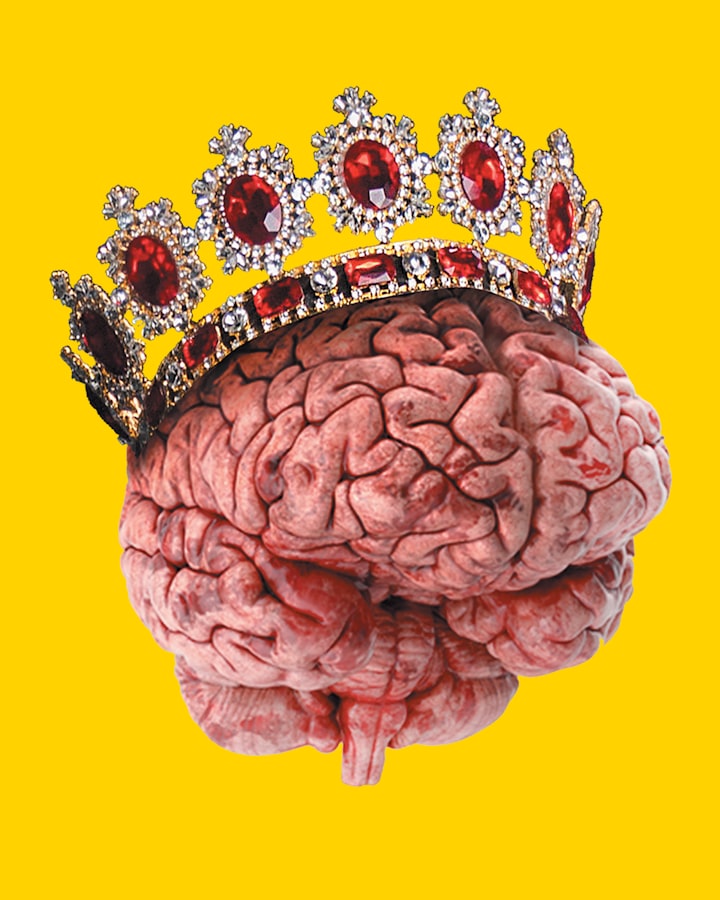My Meds Make Me Fat
Learning to Accept Weight Gain Due to Medications

I was never the size extra-extra-small that seems to be so idealized in Western society. In my earlier adult years I was around a size 8, and I was totally content with that. I never had any interest in dieting, and disagree with fad diets on principle, because I firmly believe that eating should be pleasurable and about healthfulness.
My weight began to yo-yo when I had my first episode of depression more than ten years ago. I got extremely ill and was hospitalized for two months. I lost my appetite entirely and found it very hard to eat. I ended up losing about 30 pounds. When I recovered from that episode and resumed eating normally, I gained back the weight I'd lost, but the medications I was on at the time didn't make me gain any extra weight over and above my previous "normal."
A few years later, the depression came back in full force, and again I lost about 30 pounds because it was so hard to make myself eat. I was drinking boost meal replacements because it was the easiest way to get at least some calories into me. It took over a year to recover from that depressive episode, and I ended up on a combination of multiple psychiatric medications.
As expected, I gained back the weight I'd lost due to being sick, but then I kept gaining... and gaining... and gaining. I was (and still am) taking what I call my "obesity trifecta" of medications: quetiapine (Seroquel), lithium, and mirtazapine (Remeron). Over the last few years I've gained around 40 pounds on top of my old baseline weight.
After my mental health had been stable for a couple of years, I asked my psychiatrist to come off the quetiapine, hoping that would help with the weight. Things seemed to be going well initially, but then I started having active symptoms of depression again, so I had to not only go back on the quetiapine but also increase my dose of lithium in order to get my illness back under control.
At that point, it became really clear to me that I had a choice: be overweight, or be sick. I choose to be overweight. My mental health matters far more to me than my body size. Still, full acceptance of that didn't come overnight. It was hard to come to terms with a loss of control, at least to a certain extent, over my body. It took a while before I recognized that it was time to get rid of the clothes that fit me at my old "normal" weight, and permanently let go of that conception of how my body used to be. I'm not going back there, and by now I've accepted that this is my reality.
It's been interesting how other people respond to my weight changes. People tend to compliment my weight loss, but for me, weight loss has been a big indicator that I'm unwell. It's like people are saying "you look better and have more value when you're ill." At the other end of the scale, a few people have noticed the weight the meds load onto my abdomen and have assumed that I was pregnant. I'm not sure why people don't realize you should never ever ask a woman about being pregnant unless she's clearly about to give birth tomorrow. My body is my own, and shouldn't be for others to judge.
I don't think I've ever called BS on the people that comment on either my weight loss or my supposed pregnancy. My story is complex, and likely no match for their ignorance. But I do think it's unacceptable that people feel entitled to comment on others' body shape and size. It's really none of their business.
Mental illness and the medications we take to treat them can cause major changes in our bodies. We each have to decide as individuals what the risks and benefits weight out. For me, that means sticking with my obesity trifecta.
My new book Psych Meds Made Simple talks about what medications cause weight gain and other side effects, how they do it, and what the alternatives are. It's available on Amazon.
About the Creator
Ashley L. Peterson
Mental health blogger | Former MH nurse | Living with depression | Author of 4 books: A Brief History of Stigma, Managing the Depression Puzzle, Making Sense of Psychiatric Diagnosis, and Psych Meds Made Simple | Proud stigma warrior






Comments
There are no comments for this story
Be the first to respond and start the conversation.